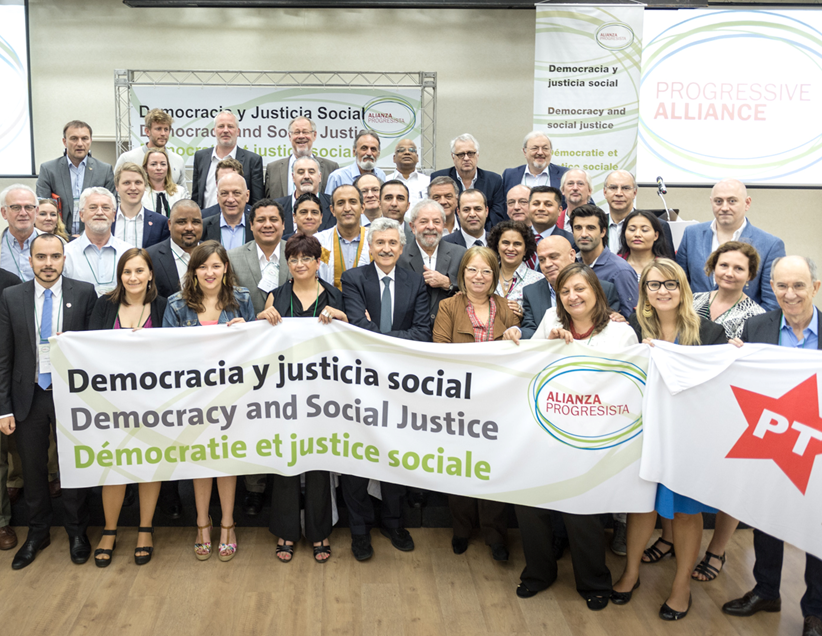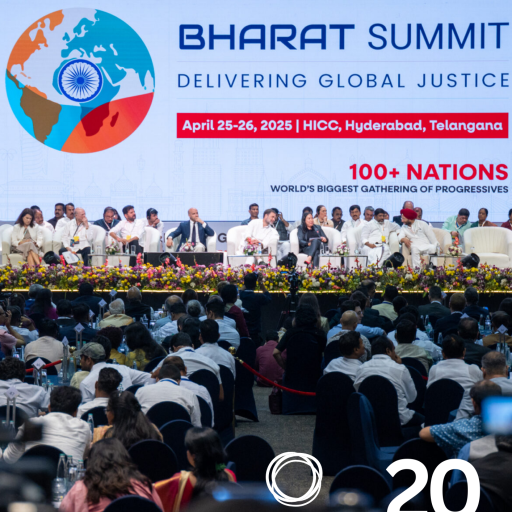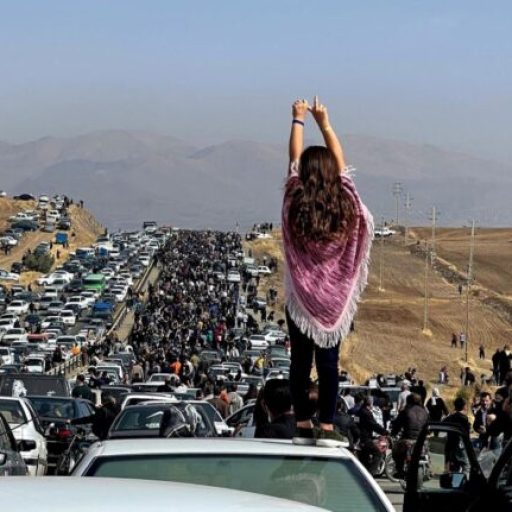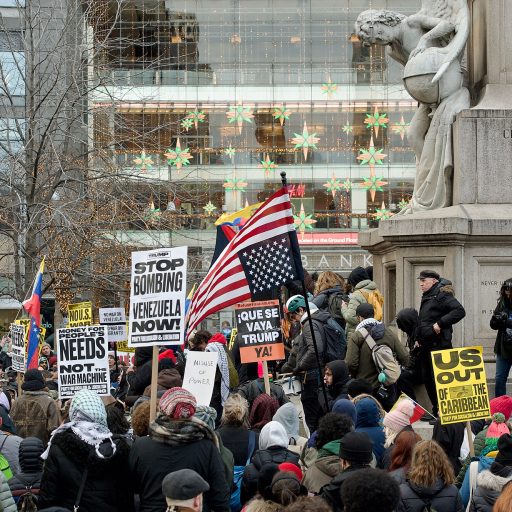As members of a progressive political party, as social democrats and socialists, our leading values and principles are freedom, justice and solidarity. Therefore, our concept of democracy is not neutral but a social democracy:
- If a democracy is to be just and sustainable, it has to be “social”. This is our understanding of social democracy: the individual rights of freedom and political participation guaranteed by democracy can only be fully exercised if the individual does not have to tackle the unevenly distributed social risks of a capitalist society alone but is assisted by the community.
- Democracy only works if the vast majority of the less-privileged sections of society acknowledge and accept it. Consequently, democracy should not be restricted to the political domain in the narrow sense. Democracy must not stop at the doors and gates of the factories, schools, universities and army barracks. Democracy must be experienced and exercised on a daily basis and in the various spheres of everyday life. This is what participatory social democracy is all about.
- Sharp trends towards inequality as can be currently observed in a lot of countries in the world undermine democratic processes. A functioning democracy requires a minimum of social homogeneity. That is exactly what progressive politics is fighting for: redistribution, equal opportunities and social advancement in order to curtail social inequality.
- No room for democracies ruled by the markets: Social democracy must keep track of the status of democracy in relation to the markets. The question is: How can the economy and the markets be controlled democratically and put to the common good – even under the conditions of globalisation? It is our task to use the egalitarian standards of democracy to control the markets. That is what makes up the core of social democracy.
- Democracy needs democrats: democracy has to be learned, too. And for this reason, social democracy must always ensure that everyone has the opportunity to participate in society and that functioning and transparent institutions are created to allow such participation. This is the only way of winning the battle against populists and their easy answers to the difficult challenges of our time, as well as against neo-conservative forces which resort to forced political, parliamentary and/or legal trials which some people call a “soft coup”.
Social democracy is under world-wide pressure
Admittedly, in the years following the end of the military dictatorships in Latin America and the Cold War in Europe, democracy became a more attractive option and more and more countries were caught up by the wave of democratisation. However, this did not lead to a continuing evolution of democratic institutions and culture in most of these countries. On the contrary, democratic advancement seems to be frozen in many countries and the restrictions on civil liberties and lack of checks on the executive are often accepted as the status quo. The legitimacy of young democracies is eroding because they are unable to satisfy the hopes placed on them for more participation, social justice and security. In an increasing number of countries, the idea of democracy is coming under pressure from various sides:
- New models such as the so-called “sovereign democracy”, in which the concentration of power and restriction of civil liberties are justified by the war against terror, religion or a specific course of economic development, are on the increase.
- The short-lived “Arab Spring” led to an authoritarian backlash, even to civil war in some countries, and to an increased threat of terrorism. The “colour revolutions” that took place in Eastern Europe often ended in widespread repression of civil society.
- Thanks to ever-expanding technologies, information is being more widely controlled, data flows are spied upon and more censorship is in place.
- In some countries, the system of checks and balances is being undermined by either the right-hand or left-hand fringes of the political spectrum which use the argument that the head of state has a direct understanding with the population and that this makes the separation of powers superfluous.
- Fighting corruption and lack of institutional transparency continues to pose a tremendous challenge, also in emerging democracies.
The challenges we face
More and more political decisions are no longer being taken by elected representatives of the people, but are being enforced by the markets and/or are being imposed on the states by supra-government institutions that have no democratic legitimacy. One reaction to this is the so-called “market-compliant democracy”, which no longer tries to evaluate or process the results of market-driven economic processes from a political aspect and to correct them, if necessary, but aligns community affairs to the needs of the markets.
- As progressive politicians, social democrats and socialists, we work towards harnessing the global economy and embedding it into society once more. Nevertheless, there are corporations with a turnover that is considerably higher than the GNP of many countries and whose sheer size allows them to undermine democratic consensus-building. These corporations are political actors whose accumulation of capital is tantamount to the accumulation of political power – rating as opposed to governance.
- Neoliberalism has put a question mark over many of the achievements of social democracy and the modern welfare state. The formal rules of democracy have been adhered to, but in many cases the power of decision has shifted towards the economic elites. Due to this “re-feudalisation” of politics, the economy and its lobbyists have direct access to politics, and large sections of the political scene acknowledge the primacy of the economy.
- Global governance structures will not be able to compensate the loss of the national states’ capacity to control affairs. This development is accompanied by a renaissance of classical sovereignty politics, which is all the more striking when one considers that the European Union – as a laboratory for transnational governance – is in the midst of a severe crisis. The international institutions in their present state are creaking under the strain of the tasks facing them, and there is very little chance that they, in their present condition, will ever become the backbone of a stable world order.
As progressive politicians, social democrats and socialists, we have made serious attempts to rehabilitate the state over the past few years and to reinforce its position against the superior strength of the markets. One aspect on which we still have to work more intensively is the creation of institutions and forms of participation. What we need is widespread participation and quick decision-making. This may seem like an attempt to square the circle, and innovative ideas are urgently needed. Surprisingly, a number of such innovations can be found in emerging economies and the developing countries: public audits, participatory budgets etc. In order to establish a sustainable social democracy, democratic institutions have to be created exactly there where democracy can be experienced first-hand. These institutions must be rooted in the everyday lives of the population and progressive, social democratic and socialist forces must be present and have an influence in these social environments.
History has shown the importance of having strong progressive left-wing parties and trade unions fit for action, as well as a committed social society. These movements are considerably more difficult to establish than spontaneous and short-lived popular movements. A true change of political majorities in the parliamentary system can only be achieved if the establishment of such necessary institutions is preceded by the politicisation of society and if society is allowed to participate in decision-making processes. Democratic power and opposition can only progress on a sustainable basis if supported by organisations such as political parties, trade unions and the civil society which are capable of actively influencing central civil institutions.
Worldwide social movements and protests as a reaction to increasing inequality have brought not only the democratic but also the social question into the focus of social debate again. Nowadays, the degree of inequality is one of the determining factors for economic prosperity, social mobility, reduction of poverty, social cohesion and political participation. The fight against inequality is one of the main tasks of the years ahead. The future constitution of the world will be decided less by the question of whether globalisation will increase the wealth of rich people and societies than by whether we succeed in levelling out social, economic and environmental differences and strengthening social cohesion in our societies.
Democracy and Social Justice for All
In the past few years, the question of social justice and democracy has been moved to a totally different platform: namely to the streets and public squares of this world. The protests in Tunis and Cairo, in Madrid, New York and Istanbul, however different they may have been, all expressed discontent with present-day society, manifested anger about social injustice and made clear that alternative channels of articulation are blocked. The protests combined two topics: the social question, including criticism of social evils, too-high cost-of-living, lack of perspectives due to unemployment, precarious jobs and ailing education systems, and criticism of increasingly authoritarian government approaches, whether in the form of corrupt “modernisation” regimes or – with a view to the Eurozone – of crisis management in Europe that largely took place without any sort of democratic control. Political protest has again become an expression of life; political involvement is increasingly turning into an existential issue.
It is our aim to ensure that the economy is not only democratically re-anchored in society but is also controlled by society. This is what will determine whether we succeed in establishing social democracy again.
- Inequality is counterproductive to economic prosperity and has a causal relationship to a lot of undesirable social developments.
- Inequality freezes social power and opportunity structures, inequality hinders social and inter-generational mobility and makes it more difficult to combat poverty.
- Inequality endangers social peace and cohesion as well as political stability, and in the long term it undermines democracy. Even in supposedly well-established democracies, growing material inequality increases the dominance of financially strong elites in political decision-making; governance by the people is gradually being replaced by governance by money.
We stand for policies that support democracy and social justice for all.





![Headline: Hier bitte das Thema [ Headline] 24.10.25, Lucerne, Switzerland, Progressive Alliance PA women conference](https://progressive-alliance.info/wp-content/uploads/elementor/thumbs/MAW251024mw859033AdobeRGB-scaled-recq0qxu9kb6pncdi2i7wo6ttne03ppnu58zxxdc74.jpg)
![Headline: Hier bitte das Thema [ Headline] 25.10.25, Lucerne, Switzerland, Progressive Alliance PA women conference](https://progressive-alliance.info/wp-content/uploads/elementor/thumbs/MAW251025mw860402AdobeRGB-scaled-recs8kegm3kqlleif2kq512xsjz2qfl3t7kc0t0tts.jpg)